Which Has Better Effect for Anemia Chicken or Beef Liver?
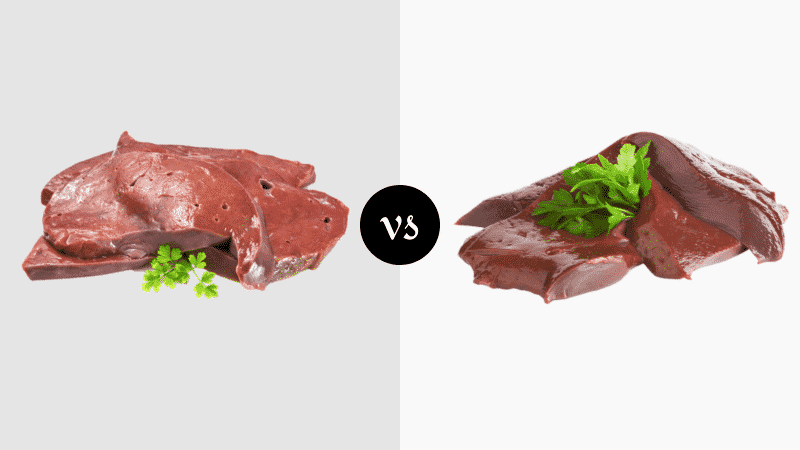
The liver is the most nutritious part of an animal. In 1934, medical science discovered that the liver is an effective fighter against anemia and other health conditions. Today, beef and cow livers have a major influence on our quality of life. So much so that liver is considered a "superfood." By itself, the liver completes a significant portion of your daily protein intake.
Apart from the medical benefits, beef and calf liver are loved for being packed with flavor and very juicy. Both beef and calf liver are healthy and tasty, but many people are often confused over which is more nutritious and the better buy. Our overview of beef liver vs calf liver will pinpoint all the differences between these two delectable forms of protein.
What Is Beef Liver And Calf Liver?
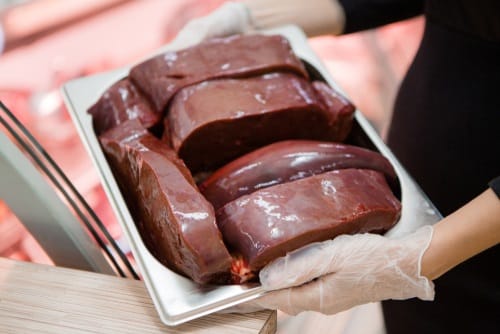
Beef liver is obtained from grown-up cows, while calf liver is taken from young cows who haven't reached a year old yet. Adding beef or calf liver to your diet is recommended for those who consume meat and want to develop a healthy low-fat, high-protein diet.
Livers contain zero fat but are extremely high in protein. Therefore, the liver is easily one of the most nutrient-dense foods available to man.
Calf Liver vs Beef Liver Nutrition
As the largest internal organ, the liver provides the complete recommended daily intake for numerous essential nutrients. For example, a single 3.5 ounce serving of beef liver provides:
- Vitamin B12 for healthy red blood cells and structural integrity of DNA
- Vitamin A for vision, immune function, and reproductive function
- Vitamin B2 (Riboflavin) for cellular growth and cellular functionality
- Vitamin B9 (Folate) for cell growth and the development of DNA
- Iron for oxygen transport and nutrient absorption
- Copper for enzymatic activation, energy balance, brain function, and metabolism
- Choline for brain function, cognitive development, and liver health
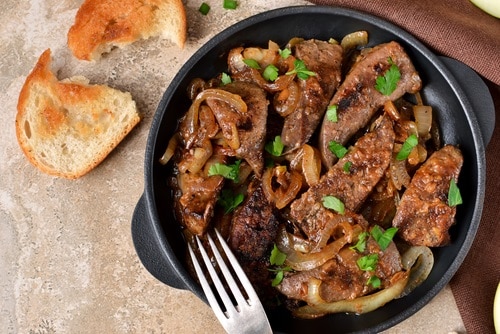
A serving of liver also gives you 130 calories and 17 grams of protein. There are also all the essential amino acids making the liver a high-quality protein source.
Is Beef Liver and Calf Liver The Same?
The nutrient content of beef liver and calf liver is the same, but the taste and texture are noticeably different. Calf liver is also slightly more expensive than beef liver, but more on these differences soon.
Is Beef Liver or Calf Liver Better?
Calf liver is younger than beef liver, but this doesn't guarantee a preferable taste. Everyone has their own taste preferences and will have a favorite between beef liver vs calf liver. Some prefer the calf liver because it is a younger filtration organ.
The liver filters all compounds, so the older the cow, the more toxins have passed through the liver. This leads to many choosing calf livers based on age and perceived "cleanliness."
Is Eating Liver Safe?
Even though the liver filters toxins, it does not retain them. Toxins are transformed into compounds that the body can use or expel safely. There is no health risk associated with potential toxicity when eating liver. The liver is, however, high in cholesterol which may be a concern for certain people.
Beef Liver vs Calf Liver Comparison
| Beef Liver | Calf Liver | |
| Flavor | Rich, Intense, Boldly Nutty, Meaty Irony Taste | Mild, Sweet, Slightly Nutty Subdued Richness |
| Texture and Appearance | Deep, Dark Reddish Brown, Juicy, Mushy | Light to Medium-Dark Red, Firm But Tender |
| Cooking | Long Cooking Time With Preparation Advised | Zero Preparation Rapid Cooking Time |
| Availability | Wide-Scale Ready-Availability | Stocks Are Limited And In Demand |
| Cost | Cheap | Expensive |
What's the Difference Between Beef Liver vs Calf Liver
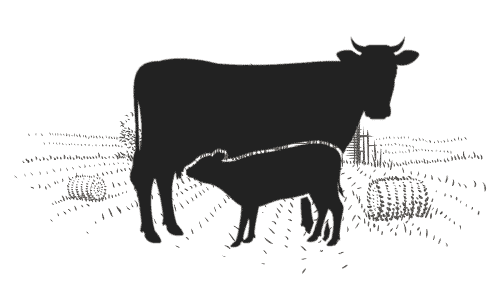
When cows reach a certain age, they are slaughtered. As cows age, their consumption of varied types of food results in a flavorful liver, which isn't as juicy as that of a baby cow.
Beef livers are harvested from cattle older than a year, whereas calf livers are from cows younger than a year. Mature beef livers taken from adult cows are tougher and have a more intense flavor.
Here's a closer look at the side-by-side differences of beef liver vs calf liver.
- Flavor
Baby cows don't get to live for as long as cattle slaughtered and sold as mature beef liver and other cuts of beef. This means that their diet is more limited, and there's less potential exposure to toxins from pesticides and other naturally occurring sources.
In addition, the simple eating habits and low strain put on the liver result in a sweet, mild flavor. It's rich with hints of nuttiness but none of the bold intensity of its counterpart.
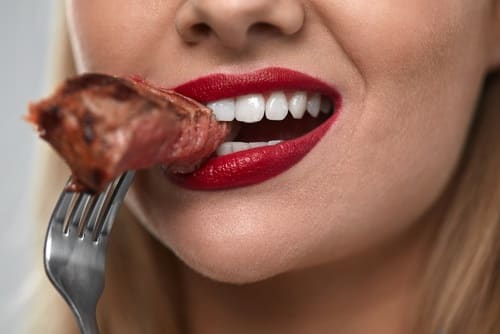
Mature beef liver varies in flavor depending on the cow's lifespan, diet, and living conditions. In general, beef liver has a strong, pungent flavor leaving an iron-like after-taste.
In addition, the earthy, nutty notes are stronger, and the distinctive taste of eating nutrient-dense organs is much more pronounced. If you haven't tried liver before, we suggest starting with calf liver to grow accustomed to the flavor.
- Texture and Appearance
Calf liver is lighter than mature beef liver. Despite the differences, liver appears a dark, reddish shade. The younger the liver, the lighter and more tender it is. Most calf liver retains its consistency and form when cut, granting a degree of chewability before melting away.
Beef liver carries a darker shade of red, often reaching a deep brownish hue. The older the liver, the darker. Liver from adult cows is firmer but cooks mushier than calf liver. Once cooked, beef liver is firm to the touch but melts to mush in your mouth.
- Cooking
Calf livers don't take much time to cook, thanks to their delicate, smooth meat. Therefore, they can be cooked as is without additional treatment. However, ensure that you don't overcook calf livers as it can be touch-and-go between perfect and tough.
Beef livers, on the contrary, are very tough to cook. It takes far longer to cook beef liver to tender. We recommend that you always apply lemon juice or milk to mature beef liver to suppress the strong, often unpleasant flavor. It'll soften the liver as well.
- Availability
Calf liver is far scarcer than beef liver. As a result, it's in higher demand, and stocks are more limited. In addition, there are far more adult cows slaughtered than babies, which results in higher general availability.
- Cost and Pricing
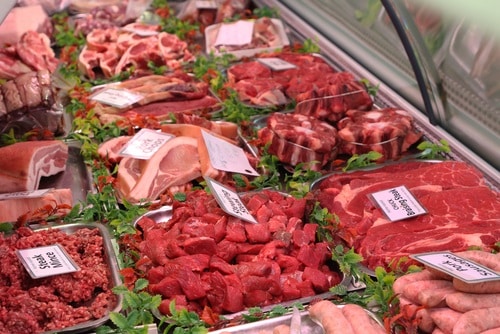
The high demand and low availability of calf liver give it a far higher price than beef liver. Beef liver is cheap, whereas calf liver is expensive.
Beef Liver vs Calf Liver – Frequently Asked Questions
After answering all your frequently asked questions, you'll know all there is to know about the differences between beef liver and calf liver.
Why is liver sometimes green, and can I still eat it?
You won't normally find green liver sold in stores. Liver turns green when bile seeps out from the gallbladder into the liver. Despite the discoloration, green liver is safe to eat. Only those who raise their own livestock commonly encounter green beef or calf livers. The controlled diet of commercial livestock and quality control practices ensures most shoppers will never see it.
Does the feeding type make a difference to beef or calf liver?
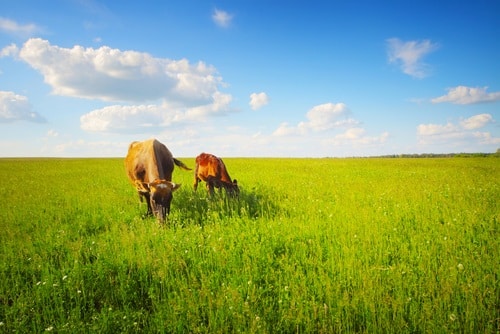
The feeding makes a difference to the texture, taste, and color of liver. While it is difficult to tell the type of feed fed to the cattle harvested for their livers, grass-fed cattle are lighter. Liver from free-range grass-fed cattle is also more flavorful, more tender, and juicier than liver from grain-fed cows.
Can you consume too much beef or calf liver?
It can be dangerous to consume beef or calf liver too often. A single portion of beef or calf liver has seven times the recommended daily intake of copper and over six times the RDI of vitamin A. Eating liver every day or multiple times a day over a prolonged period can cause Vitamin A toxicity and/or a copper overdose.
Overdosing on Vitamin A will happen over time as the Vitamin accumulates in your liver. Once over the threshold, vision problems, bone aches, and skin problems can occur.
If left untreated, hypervitaminosis A can damage your liver and may put pressure on the brain. A copper overdose will cause diarrhea and general gastrointestinal distress while leading to kidney failure if persistent over a long period.
Is there an alternative to fresh beef or calf liver?
If you can't grow accustomed to the taste of liver but have been advised to incorporate it into your diet due to anemia, there are other options. Desiccated liver capsules are available, which give you the complete range of nutrients provided by the superfood but just in a convenient zero-taste capsule.
Do you need to soak beef or calf liver before cooking?
It isn't necessary to soak beef or calf liver before cooking. Calf liver shouldn't be treated or soaked at all. However, mature beef liver has a less intense flavor if you soak it first. Most cooks recommend soaking beef liver in water or milk for several hours to eliminate the undesirable flavor accompanying aged organ meat.
Final Thoughts
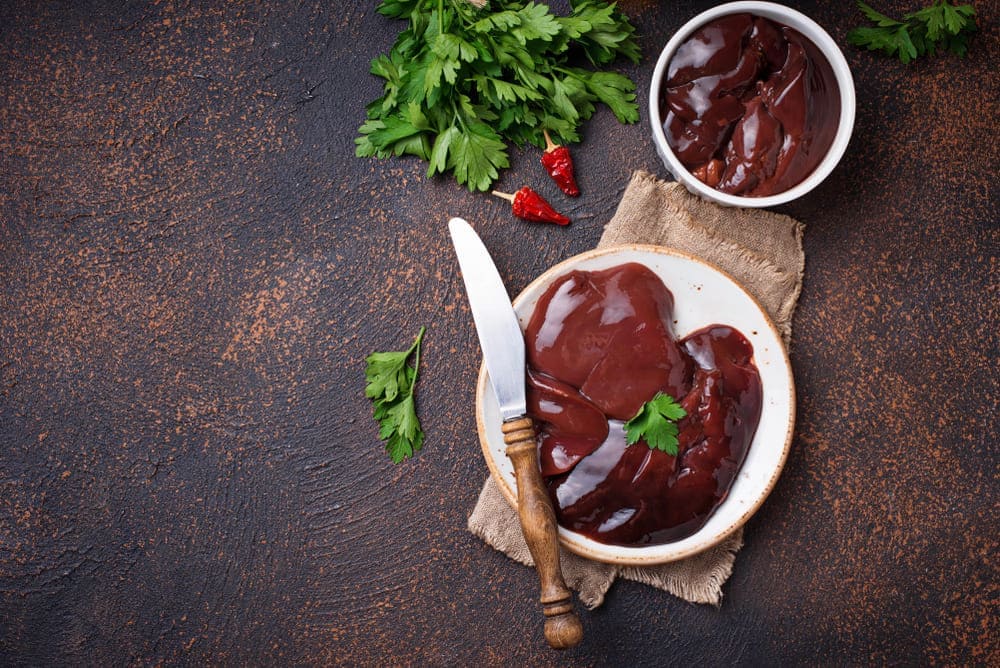
Between beef liver vs calf liver, there is no clear winner, just a selection of flavor and texture differences that'll make one a clear favorite depending on your personal taste. Never cook liver until it is grey.
By this point, the nutrient content is severely diminished, and the meat is dry and flavorless. Regardless of which type of liver you're cooking, make sure there is still a degree of pinkness in the middle. Supplementing regularly with liver will ensure you're getting in a balanced range of nutrients, all your amino acids, and a healthy portion of protein.

Source: https://missvickie.com/beef-liver-vs-calf-liver/
0 Response to "Which Has Better Effect for Anemia Chicken or Beef Liver?"
Enregistrer un commentaire